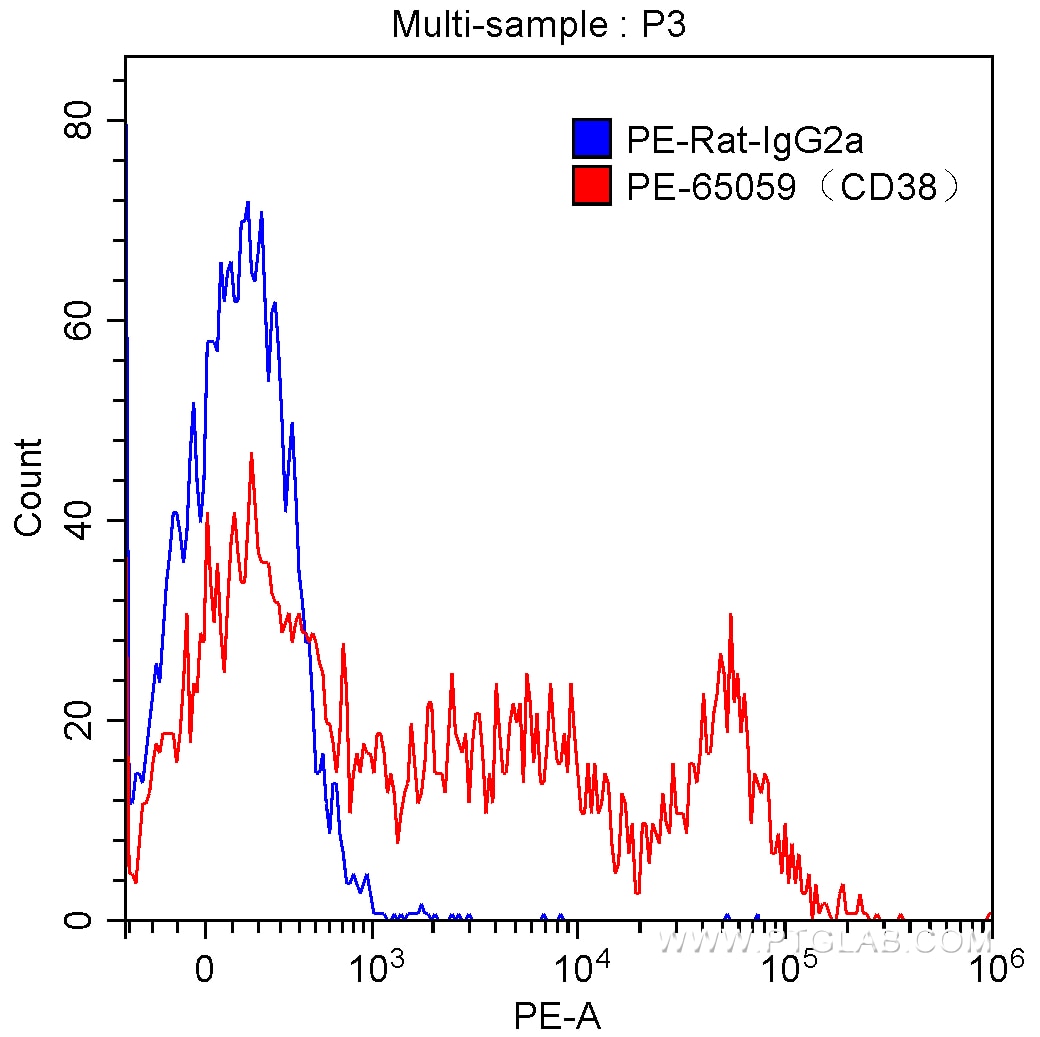CD38 Monoklonaler Antikörper
CD38 Monoklonal Antikörper für FC
Wirt / Isotyp
Ratte / IgG2a
Getestete Reaktivität
Maus
Anwendung
FC
Konjugation
PE Fluorescent Dye
CloneNo.
90
Kat-Nr. : PE-65059
Synonyme
Galerie der Validierungsdaten
Geprüfte Anwendungen
| Erfolgreiche Detektion in FC | Maus-Splenozyten |
Empfohlene Verdünnung
| Anwendung | Verdünnung |
|---|---|
| This reagent has been tested for flow cytometric analysis. It is recommended that this reagent should be titrated in each testing system to obtain optimal results. | |
| Sample-dependent, check data in validation data gallery | |
Produktinformation
PE-65059 bindet in FC CD38 und zeigt Reaktivität mit Maus
| Getestete Reaktivität | Maus |
| Wirt / Isotyp | Ratte / IgG2a |
| Klonalität | Monoklonal |
| Typ | Antikörper |
| Immunogen | Maus-Knochenmark-Vorläufer-B-Zellen |
| Vollständiger Name | CD38 antigen |
| GenBank-Zugangsnummer | BC046312 |
| Gene symbol | Cd38 |
| Gene ID (NCBI) | 12494 |
| Konjugation | PE Fluorescent Dye |
| Excitation/Emission maxima wavelengths | 496 nm, 565 nm / 578 nm |
| Form | Liquid |
| Reinigungsmethode | Affinitätsreinigung |
| Lagerungspuffer | PBS mit 0,1% Natriumazid und einem Stabilisator. |
| Lagerungsbedingungen | Bei 2-8°C lagern. Vor Licht schützen. 20ul Größen enthalten 0,1% BSA. |
Hintergrundinformationen
CD38, also known as ADP-ribosyl cyclase 1, is a type II transmembrane glycoprotein with a short N-terminal cytoplasmic tail, a single membrane-spanning domain, and a C-terminal extracellular region with four N-glycosylation sites (PMID: 2319135). The extracellular domain of CD38 has bifunctional enzyme activities that catalyze synthesis of cyclic ADP ribose from nicotinamide adenine dinucleotide (NAD) and hydrolysis of cyclic ADP ribose to adenosine diphosphoribose (PMID: 10636863). CD38 is expressed on a variety of hematopoietic and non-hematopoietic cells and is involved in diverse processes such as generation of calcium-mobilizing metabolites, cell activation, and chemotaxis (PMID: 25938500).
Protokolle
| Produktspezifische Protokolle | |
|---|---|
| FC protocol for PE CD38 antibody PE-65059 | Protokoll herunterladen |
| Standard-Protokolle | |
|---|---|
| Klicken Sie hier, um unsere Standardprotokolle anzuzeigen |


